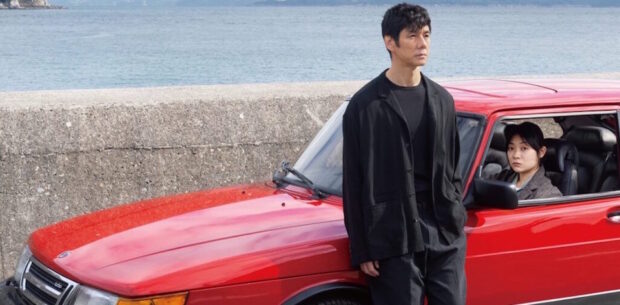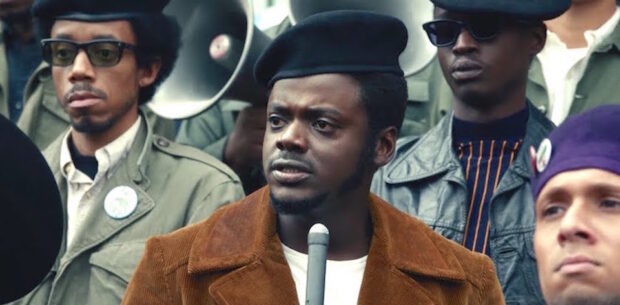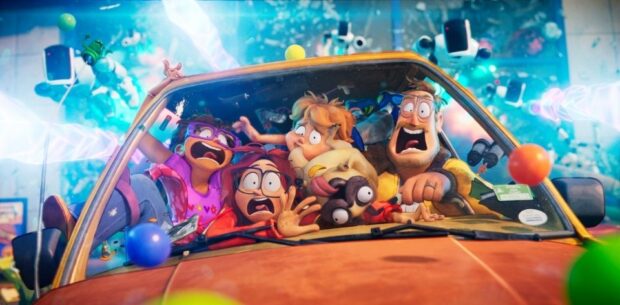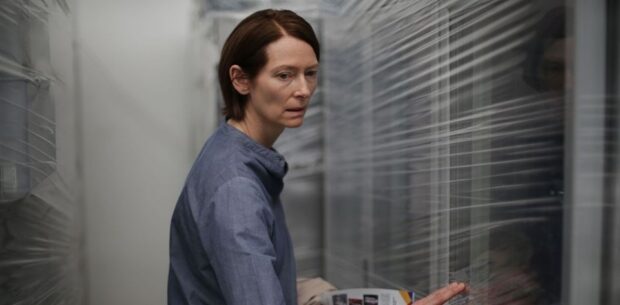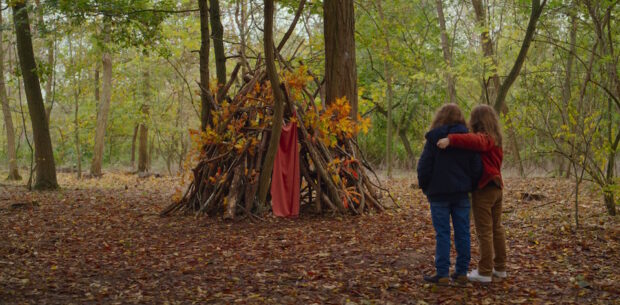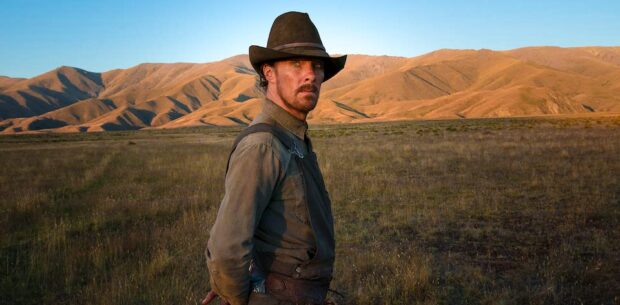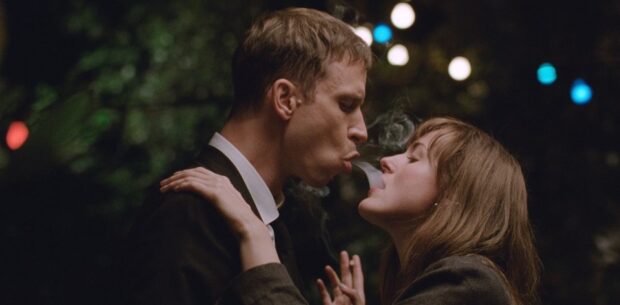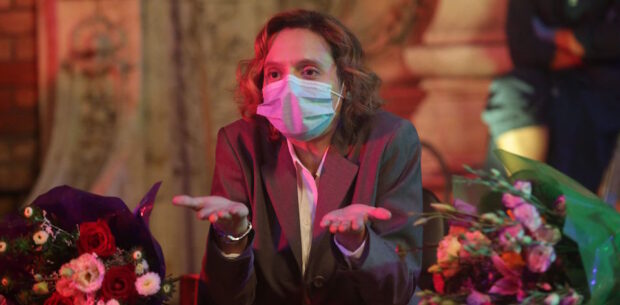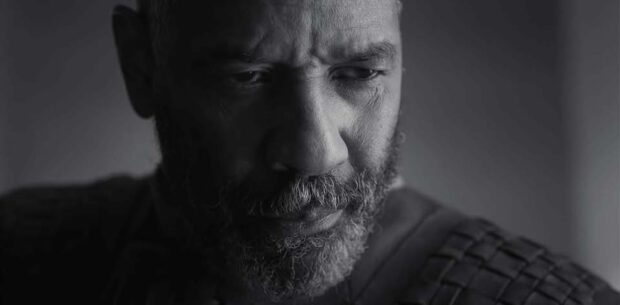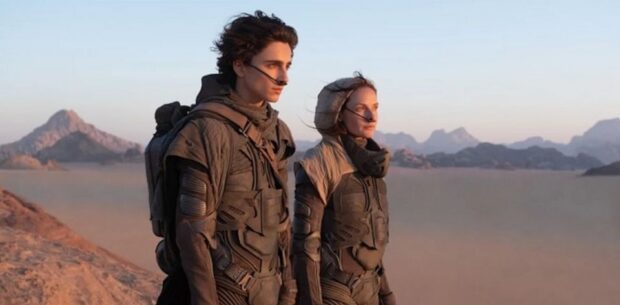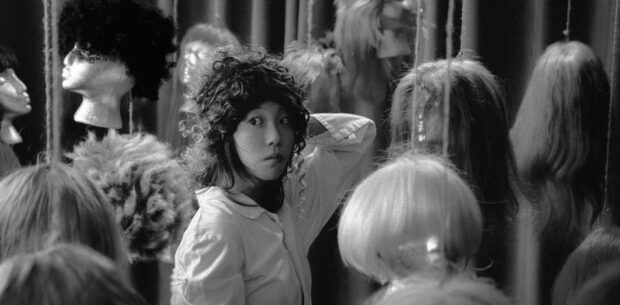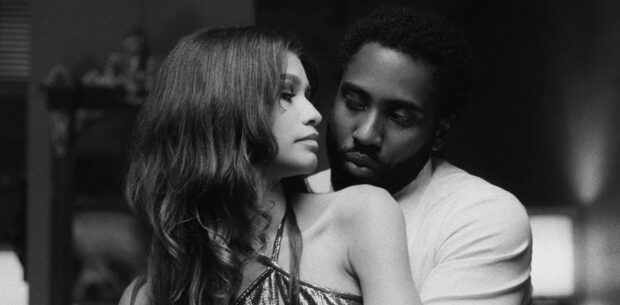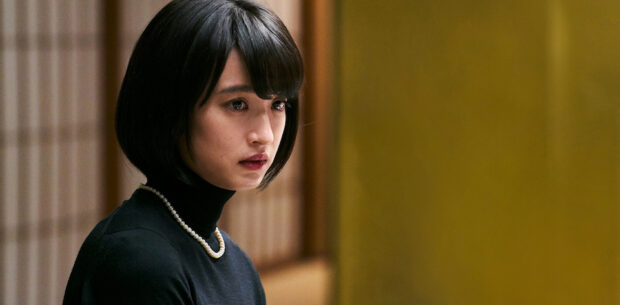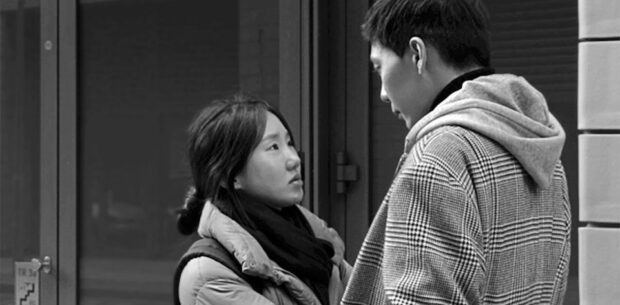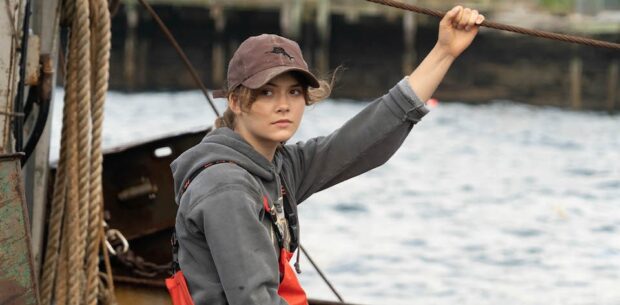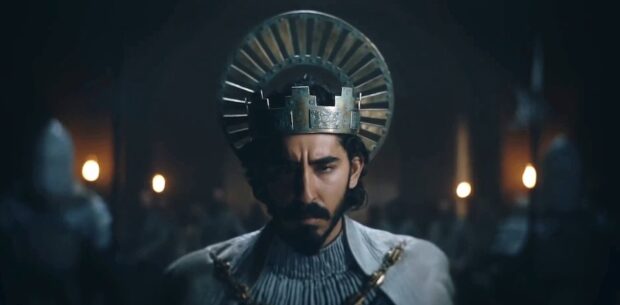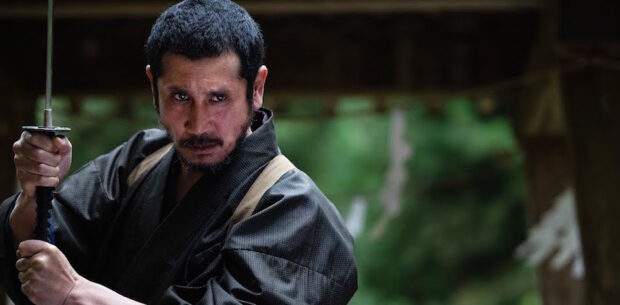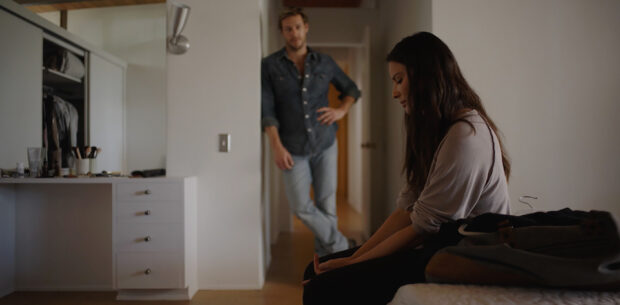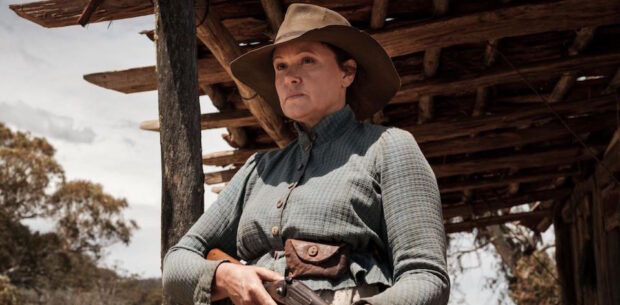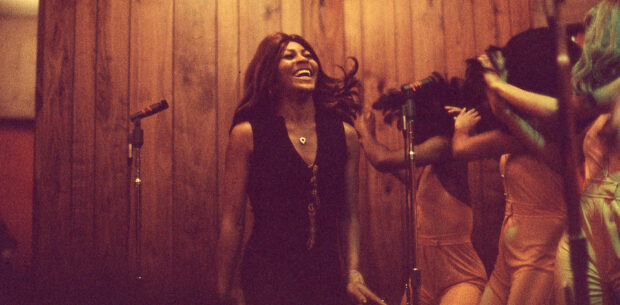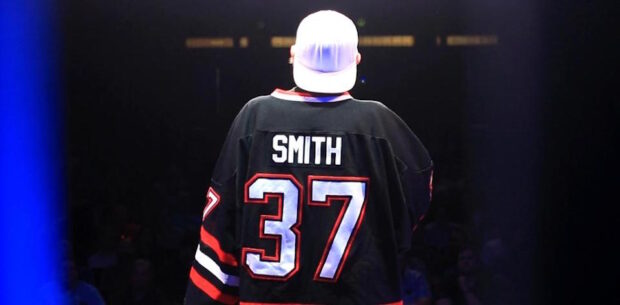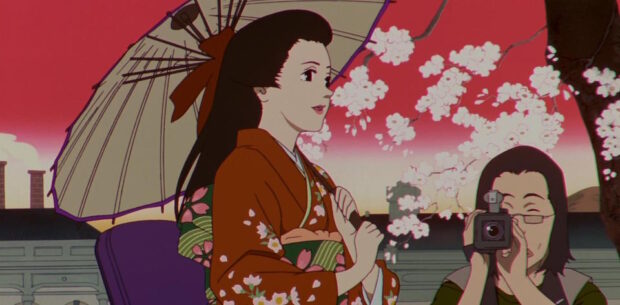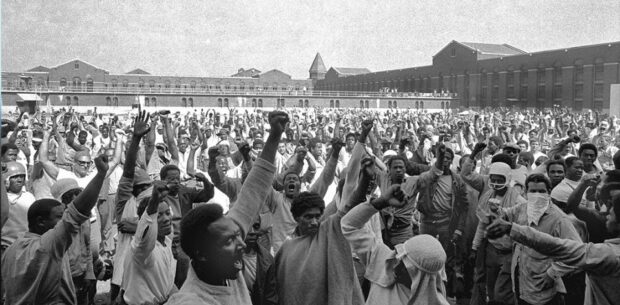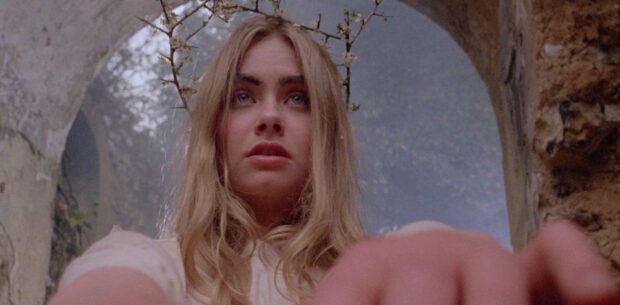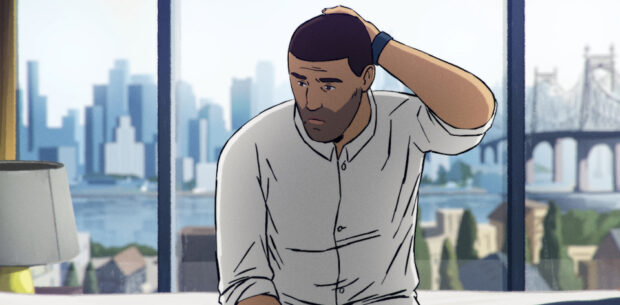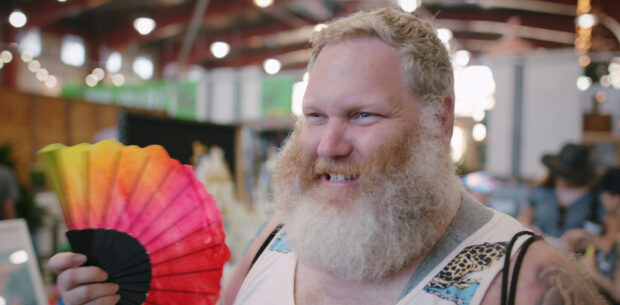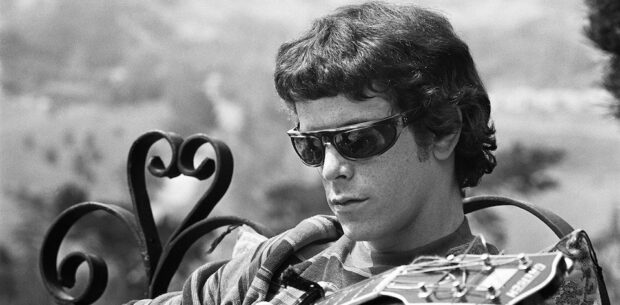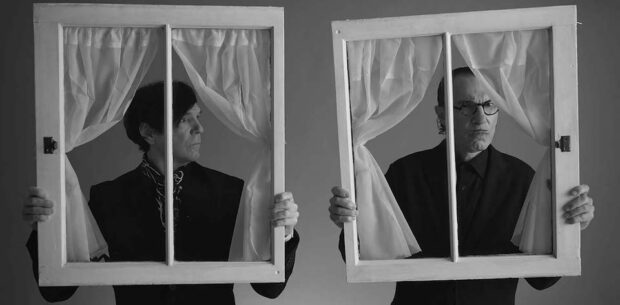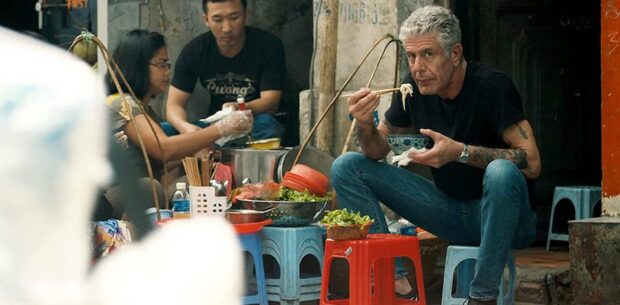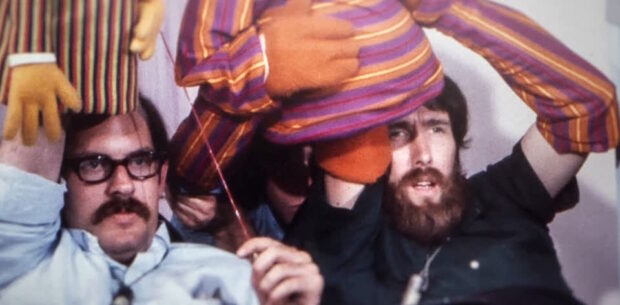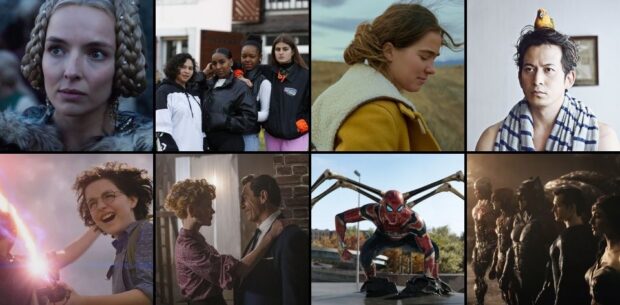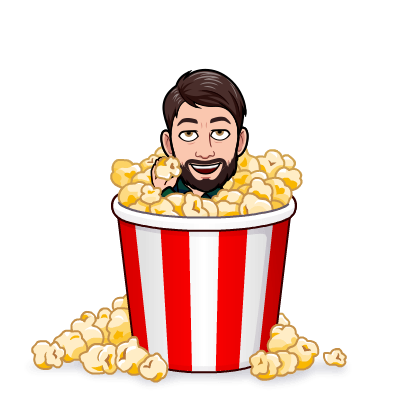
You know what? To hell with this year.
Every year we sit down and compile these lists, reflecting on the ups and downs of the year that’s just gone by. To summarise, this year sucked.
Large parts of Australia, and indeed the world, spent months in lockdown or restricted movements. People couldn’t hang out with friends, family and loved ones. Far too many people lost their lives. That’s not ok. It is ok to feel that it was shitty. So let’s just acknowledge that before moving on and celebrating what was good about it.
Unsurprisingly, film and theatre had massive disruptions this year. 2021 had fewer movies than 2020, at least in terms of US domestic dates, which can be partly explained by the disruption to production last year. Most festivals went online, or at least presented hybrid offerings. The windows between cinema and VOD got smaller this year, with the likes of Black Widow bypassing cinemas almost entirely. HBO Max brought Warner releases to homes day and date. We all kind of got used to not having to go out.
It doesn’t seem that distributors are that keen to repeat the experiment in 2022. Warner has already said won’t be fast-tracking new films next year, especially given that US domestic box office was still down 61% on pre-pandemic numbers. Several major festivals have indicated that they aim to be in-person only events. Indeed, here we are in the middle of awards season and members of critics circles are showing off more physical swag than usual. (Things I received this year included giant hardcover books, multiple toys, stickers, a candle, a neckerchief, CDs, many DVDs, posters, a sweatshirt, two shot glasses and a hip flask — all from the same studio. The environmental impact of the shipping alone is staggering). There is a balance there somewhere, but we’re yet to find it.
So, as we contemplate the future of film distribution we also take the time to look back on the year that was. Here’s a collection of my favourite films of the last 12 months. As always, if there are major omissions, it’s because I didn’t get to screen it (or maybe I just didn’t like it). A complete ranked list of every new release film I saw in 2021 can also be found on Letterboxd.
FEATURES
Drive My Car
It’s been a bumper couple of years for Ryusuke Hamaguchi, and this adaptation of Haruki Murakami’s short story continues a terrific run. Like Happy Hour, it’s simultaneously (and contradictorily) much longer than it could have been and exactly the right length. The longer you spend with these characters, the longer you want to. Each passing moment reveals a little bit more of their pain and desires — and it’s kind of addictive. Hamaguchi’s measured drama of a life lived with one foot in the past puts the viewer in the back seat and takes us along for every inch of the journey. Read our full review.
Judas and the Black Messiah
Coming at us like a laser beam in March, it was an early 2021 release that marked itself as one of the best films of the year. The life and death of Fed Hampton, best known as chairman of the Illinois chapter of the Black Panther Party, has been well covered in documentary and narrative feature — so this is a film that feels far fresher than it ought to be. Backed my amazing performances, especially from is a picture that is both a historical document and a fiery fist in the air for our times. Read the full review.
The Mitchells Vs. The Machines
What a wonderful surprise. From the opening frame of the mashed-up studio idents, this is one of those animated films that is clearly going for something consciously different. There’s always the concern with this hybrid approach that it will wear thin after a while, but director Mike Rianda and company buck the trend by making these characters even more endearing as the film progresses. I was delighted to laugh out loud through most of the disarmingly funny back half, as Rianda and Jeff Rowe’s hyperkinetic script genuinely splits some sides. Easily a contender for Best Animated film, as well as being one of the best of the year. More like this please.
Memoria
In a film screening that turned out to be a social catch-up as much as a festival outing, I was asked several times afterwards (in typical Antipodean vernacular) ‘How’d you go with that?’ Each time I found myself responding in more or less the same way ‘I was wanting a film that would just wash over me, and this was the ticket.’ Weerasethakul presents another terrific and meditative piece that links the language of cinema with people connected across time and space. To say anything more would be criminal, but I’ve already committed that crime: read my full review here.

Evanagelion 3.0 + 1.0: Thrice Upon a Time
Depending on your point of view, the fourth and probably final film in the Rebuild of Evangelion series has been either 14 years or several decades in the making. At last, here is the culmination of all of the various narratives the series has created over the years. It’s frustrating at times, awe-inspiring at others, and quietly emotional when you least expect it. It is, in other words, Neon Genesis Evangelion. You can (not) miss. Check out our full review.
Céline Sciamma (Portrait of a Lady on Fire) returns to demonstrate her mastery and innate understanding of formative childhood moments, interior life and familial bonds. Sciamma manages to achieve all of this in a tidy 72 minutes. Reflecting the diminutive co-stars, the filmmaker packs a big emotional journey into a small package. Not that we needed any confirmation, but Sciamma solidifies her reputation with another amazing achievement that speaks to the child in us all. Read full review.
The Power of the Dog
If you suspected that the winning combination of Jane Campion, Benedict Cumberbatch and Kirsten Dunst would knock our proverbial socks off, you’d be right. This delivered in spades. Backed by Ari Wegner’s stunning cinematography and Johnny Greenwood’s staggeringly good score, this is a slow-burning masterclass in character-based drama while giving us a new spin on the 20th century Western. Bronco Henry would insist that you watch it.
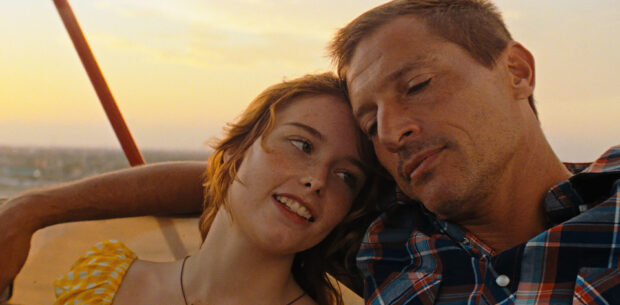
Red Rocket
Following the powerhouse The Florida Project, filmmaker Sean Baker returns with one of the most unlikely — and unlikeable — leads of the year. Former adult film star Mikey Saber (Simon Rex) returns home to leech off his ex partner and her mother. He also begins a relationship with the 17-year-old Strawberry (Suzanna Son), the girl who works at the donut shop, and begins to groom her for his own benefit. Everything goes horribly wrong in a series of crises of Mikey’s own making, but it’s a compelling joy to watch thanks to the lead performances — and the fact that we all know a Mikey. Grab a donut hole and read our full review.
The Worst Person in the World
It’s interesting that both this and Ryûsuke Hamaguchi’s Drive My Car appealed so strongly this year. Both films take a leisurely look at a life lived, although Joachim Trier’s film probably has more in common with some of Hamaguchi’s earlier works (like Asako I & II). One of those rare films where you feel every inch of the journey, and the only real complaint is that it ended. Renate Reinsve is also amazing, and we watch her transform as a character over the course of the two hours.
Bad Luck Banging or Loony Porn
Well, the most unique title of the year is secure at least. This film is, to put it mildly, unexpected. If you make it through the first five minutes — which I will not spoil for you here — then you’ll get to one of the most unique movies of this (or probably any other) year. Ostensibly about a woman who’s life changes when a private sex tape is leaked, it really is about so much more. From Coronavirus to the the social mores of post-socialist Romania, it works best when we get to the satirical third act, in which a teacher is put on ‘trial’ by the PTA. The ending is destined to go down in history as the most outrageous in the Berlinale’s Golden Bear history. It’s the one time I wished I was with a festival audience, just to listen to them squirm. Read full review.
The Tragedy of Macbeth
One of the things about modern adaptations of Shakespeare is that they tend to look for a new angle, be it social media framing or updates to the setting. What is so immediately striking about Joel Coen’s take is how theatrical it is, with its minimal sets and stark chiaroscuro lighting. Yet Coen also uses cinema in a way rarely seen in an adaptation of the Bard, making for short but powerful piece of performance. Speaking of performance, it goes without saying that the acting is sublime. It’s great to see Denzel Washington bringing back his classical stage roots to the screen for the first time since Much Ado About Nothing (1993), while Frances McDormand reprises a role she last played for the Berkeley Repertory Theatre in 2016.
Dune
A sci-fi spectacle in the grandest sense: a difficult adaptation is birthed onto the big screen, organically fusing a modern classic with meticulously visual feast for the eyes. Being in Australia, where the non-festival release date wasn’t until December, we already knew that a Part 2 had been greenlit. While one could argue that this is only ‘half a film,’ being armed with the knowledge that this isn’t trying to cram all of Frank Herbert’s tome into a single picture gives us some breathing room. Indeed, it allows us to simply sit back and absorb this as the spectacle that it is. Read the our full review.
Bipolar
Who is the dreamer and who dreams the dream? Queena Li’s film is all about the journey, beautiful photography, an eclectic cast of characters and one possibly spiritual lobster. A film that stays true to its name in the divisive feelings it will evoke in viewers. On this particular road, we find a dreamer aware they are in a dream and wanting to wake up. If that isn’t an apt metaphor for the last few years, then I don’t know what else is. Plus, it has the best use of a lobster in a narrative since Annie Hall. Read the full review now.
Malcolm & Marie
Was 2021 the year of Zendaya? Sam Levinson’s artfully constructed two-hander, in which a filmmaker (John David Washington) and his girlfriend (Zendaya) return home from his movie premiere and unleashed a torrent of pent-up conversations, became the inadvertent lockdown mood of early 2021. That said, it’s months later and I have no memory of how the film ended or finer plot points of the film. Just like a real couple fight, the feeling lingers but the details do not.
Aristocrats
Beautifully shot and impeccably cast, Sode Yukiko’s third feature unfolds in bookish chapters to give a portrait of a life, well…lived. Based on novel by Mariko Yamauchi, Sode’s film is tale of two women. When we meet the fairly upper-class Hanako (Mugi Kadowaki), she has recently split with her fiancé. The provincially born Miki (Kiko Mizuhara), worked hard to earn a place in a fancy university but has since fallen on more difficult times. ARISTOCRATS may not be be for all tastes: it’s wanders to the slow beat of its own drum. Yet its themes of belonging and expectation are universal, and one can’t help but feel that this is the kind of film that will reveal more of its subtleties on repeat viewings. Read full review.
Language Lessons
Natalie Morales’ film — which debuted in Berlin and also played at SXSW — may have been the biggest surprise of the season. It is essentially structured around a series of video and audio calls between Spanish teacher Cariña (Morales), who has been secretly hired by Will to give lessons to his husband Adam (Duplass). When tragedy strikes, they continue their conversations. We all need to find connection, especially over the last year, and at its corazón this is what this charming spin on the ‘lockdown film’ does. While it’s not the first Zoom/phone based drama, and it certainly won’t be the last, it might be the most heartfelt. Filled with genuine surprises and emotional turns, this is one video call where you won’t want to have a sneaky browser open. Read the full review.
Introduction
INTRODUCTION may feel like a minor Hong Sang-soo film, running just 66 minutes and split across two countries, but it maintains his distinctive style. Hong has refined his snapshots to a series of recurring motifs, a deceptively carefree style, and a company of familiar actors. Read the full review.
CODA
As the opening night film to a major film festival, albeit the digital leg of that festival, one tends to expect this to be a feel-good flick full of all the usual tropes. Yes, there’s all of this in spades. What you may not expect is how deeply touching it also is, and there’s at least one tender moment between father and daughter that had me sniffling into my notes. A charmer that’s going to wind up on a lot of lists this year. Read the full review right here on The Reel Bits.
Remain In Twilight
An emotional, and often disarmingly strange, journey about the bonds of friendship, dealing with grief and learning to move on. In other words, it’s a Daigo Matsui film. Set over the course of 12 years, Matsui’s use of longer takes allows us to really know these characters: a group of men seeing each other for the first time in 5 years for a wedding. Oh, and one of them is dead but just keeps on hanging around with them. Read the full review.
Pompo: The Cinéphile
Have you ever felt completely seen by a movie? Based on the manga by Shogo Sugitani, the animated film from director Takayuki Hirao and studio CLAP is made for film lovers. This joyful and film literate feature is a sophisticated and clever insider look at the film industry while also celebrating the medium that we all love so much. Read our full review here.
The Green Knight
So, as a kid I couldn’t get enough of Arthurian legends, and was a little convinced I’d find the Holy Grail one day. I was also one of those people who thought that Rooney Mara eating a pie for 5 minutes in A Ghost Story was one of the greatest cinematic moments of 2017. So THE GREEN KNIGHT is solidly in my wheelhouse. While I don’t pretend to understand the complicated back half on a single viewing, it’s not since Excalibur that I’ve been so completely mesmerised by a combination of Arthurian chivalry, otherworldly imagery and sex magic.
Go Seppuku Yourselves
Toshiaki Toyoda has rapidly become a festival staple, thanks in part to his outstanding collisions of sound and vision in Wolf’s Calling and The Day of Destruction. As with the latter film, the global pandemic lurks behind the Meiji facade. The demon that is assumed to have ‘poisoned the well’ could very much be an analogy for the intangible nature of a pandemic, even if the film treads a fine balance between literal and figurative causes. You can read our full review of that film here.
Violet
An impressive feature directorial debut from Justine Bateman. From the gut punch of an opening, set to the music of Venetian Snares, this is a rare debut that gets inside your head while also exploring the interiority of a character. What the titular Violet refers to as “the committee in my head” is often at war with itself as it starts to comment on a sea of micro (and macro) aggressions arising from Violet’s Hollywood job. It’s a perfect film for the moment, but it will also speak to anyone who has that nagging voice driving their anxiety and another that just wants to break free. Read our full review.
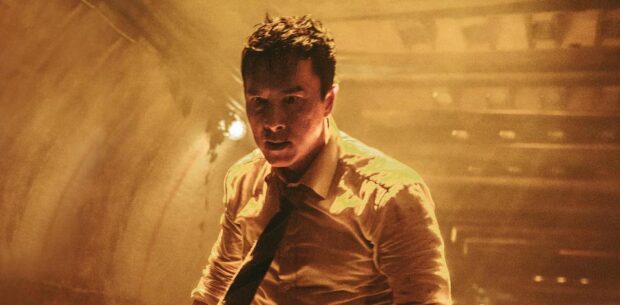
Raging Fire
The film world lost Benny Chan last year after a short bout with cancer. His final film — starring Donnie Yen and Nicholas Tse — gets a posthumous release, and it’s as fitting a tribute as any to one of the true heroes of Hong Kong action filmmaking. As the film closes out with footage of Chan at work, coupled with a dedication to the late director, even the most hardened of HK action fans will probably feel a little emotional. This is a film that knows its audience. Read our full review.
The Drover’s Wife
The only reason that this is sitting towards the end is because it has not yet officially hit Australian cinemas. (It’s currently listed for May 2022, which is baffling). Leah Purcell’s adaptation of her own play is a strong intersectional examination of the Australian western mythos, one that asks us to re-examine our history while commenting on contemporary issues. Read our full review.
DOCUMENTARIES
Tina
A document of an eventful life and career, told by the only person who could play the part of Tina Turner. While dedicated Turner fans are unlikely to find anything new here, you’d still be hard pressed to find a more engaging document about her whole life and career. Describing that journey, Turner said in a 1985 interview, “I’m a girl from a cotton field that pulled myself above what was not taught to me.” As the film closes out with ‘The Best,’ it’s hard to disagree with one of the great survivors and entertainers of our time. Simply the best. Here’s the full review.
Clerk
“I want to be the Kevin Smithiest Kevin Smith I can be until the end of time.” How do you capture a career as diverse as Kevin Smith’s in a single documentary? From homemade footage to his podcast empire, Malcolm Ingram gives it a red hot go. While this may have been more objective if it had been helmed by someone other than Ingram – indeed, Smith himself leads the conversation more often than not – it’s unlikely they would have had the same level of access. Both a fond look back and a celebration of the enduring nature of his career. It might be baffling from the outside, but it all kind of makes sense by the end. Check out the full review.
Satoshi Kon: The Illusionist
When filmmaker Satoshi Kon died in 2010 following a brief battle with pancreatic cancer, he was 46. In his all-too-brief time on Earth, he left us with some of the most revered animated films of the last few decades: Perfect Blue (1997), Millennium Actress (2001), Tokyo Godfathers (2003), and Paprika (2006). Both a summary of an impressive career and a tribute to one of the driving forces of animation over the last few decades, French documentarian Pascal-Alex Vincent paints a portrait of someone who demanded high standards from others, and even higher from himself. Read our full review.
Attica
It’s remarkable that they were able to assemble so many eyewitnesses 50 years later. Yet the people interviewed are the heart and soul of this incredibly raw oral history of a moment. The last half of the film, where prisoners and witnesses alike break down over the memory of the event, breaks your heart while making you angry at the system that allowed it. Essential viewing.
Woodlands Dark and Days Bewitched: A History of Folk Horror
With over 100 films covered and 50 interviews, Kier-La Janisse’s comprehensive documentary may be the definitive word on folk horror. Taking just over three hours, Janisse guides us through the origins of folk horror films, from the more common British folk horror of the 60s and 70s through to more recent examples from around the world. Read our full review.
Flee
One of the few films that will rightfully appear on ‘best of’ lists for animation, documentary and international features. It’s a terrific blend of all of these things, taking the refugee experience and infusing it with deeply personal stories and vignettes. A must-see, especially for that person who keeps telling you that refugees are somehow taking a shortcut through the immigration experience. This life, filled with uncertainty and turmoil, showcases a grim reality while remaining hopeful.
Summer of Soul (…or, When the Revolution Could Not Be Televised)
The best thing about this music documentary is that there is absolutely no reason for Bono or Thurston Moore to turn up. Seriously, they are in every music doco I’ve seen. A mate used to call it the ‘Bono seal of approval.’ Thankfully, this phenomenal group of people don’t need any stamp of approval: the music speaks for itself, and Questlove’s recovery of these historic pieces is outstanding. If any music footage needed a 9-hour cut this year, then it’s this.
Set!
The world of competitive table setting is not only intriguing, bizarre and as mad as you’d think, but filled with the kinds of personalities you’d not expect outside of parody. Perhaps the only problem is that this film got there before Christopher Guest had a chance. Read our full review.
One Pint at a Time
A passionate portrait of brewing culture that is in need of some changes – and the group of people who are doing just that. Following director Aaron Hose’s earlier short films Brewchurch and A Fresh Perspective — examining a modern church-owned brewery and the first-ever Black beer festival respectively — this feature looks at the vast array of African-American brewers breaking barriers across the country. Pour a glass and enjoy a long drink with our full review.
The Velvet Underground
No self-respecting director can get through an entire filmography without a retrospective documentary about an iconic band or two. With Scorsese having covered most of them, Todd Haynes turns to the formative years of the Velvet Underground. This is perhaps the greatest strength of this doco, covering their proto-years through to the late 60s. Really could just listen to John Cale’s experimental music for 2 hours. Laser focused at times, a drifting dreamscape at others, it’s one of the better summary documents of a band.
The Sparks Brothers
Edgar Wright’s passion project about the legendary Sparks. You might think you know very little about Sparks going in, but you know their songs. I was completely invested in their career within the first 20 minutes. Wright assembles his Avengers of documentary talking heads — seriously, check out the list of names — for this incredibly engaging potted history of an undefinable band.
Roadrunner: A Film About Anthony Bourdain
Anthony Bourdain left us just over 3 years ago, and what Morgan Neville manages to do more than anything is demonstrate what he left behind. You’ll read a lot of things about this movie, and perhaps have already read about its most controversial aspects. Yet it’s a celebration of his life, but allows him to tell his own troubled story in his own words. The last 20 minutes is rough going, for obvious reasons, but director Morgan Neville handles it with beauty and sensitivity. Indeed, showing the impact of Bourdain’s departure on loved ones is a really important way to conclude the film. Sad, heartfelt, and at times disarmingly funny, this is a terrific document.
Street Gang: How We Got to Sesame Street
Well, this was delightful. Partly a nostalgic trip to lessons I remember from being a child (or looking up on YouTube as a grown-ass fellow), it’s also a loving testament to the people who put so much of themselves into making this ambitious project a cultural icon.
OTHER STUFF I LIKED
There were so many other films that just brought me joy this year. On the blockbuster end of the scale, GHOSTBUSTERS: AFTERLIFE was a nostalgia trip that had me grinning from ear to ear, which is pretty much the same that can be said for SPIDER-MAN: NO WAY HOME. Daniel Craig’s last outing as James Bond in NO TIME TO DIE brings his era full circle in a satisfying and incredibly twisty conclusion. It’s hard not to at least acknowledge the impact of ZACK SNYDER’S JUSTICE LEAGUE, a film that might be way too long but wonderfully and unabashedly celebrates the excesses of the comic book medium.
Ridley Scott was very vocal about the people who didn’t see THE LAST DUEL, but you really should: it’s one of his finest in years. Gems LA MIF, MONTANA STORY and THE FABLE: THE KILLER WHO DOESN’T KILL came to us from festivals around the world, and all took me completely by surprise.
Finally, just a special accomodation award goes to Pixar animated short TWENTY SOMETHING, released as part of the SparkShorts program. Speaking directly to the anxiety we’ve all felt about being imposters in our own bodies, it’s a refreshingly 2D animated film with a strong point of view. Really looking forward to seeing more from Aphton Corbin.


